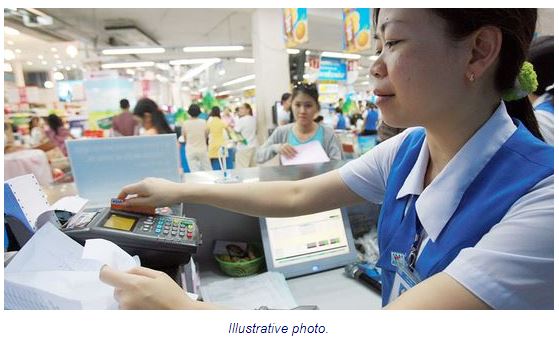Cashless payment to make up 50% of total transactions in Vietnam in 3 years: Expert
While fintech is sweeping through the traditional economy in Vietnam like everywhere else in the world, the vast majority of the local people remain unbanked or underbanked.
According to the World Bank, only 40% of Vietnamese adults had a bank account in 2017. MoMo is one of the local companies targeting at the other 60%.
Moreover, 90% of daily transactions are conducted in cash, while the rate goes up to 99% for transaction worth under VND100,000 (US$4.34), stated Dao Minh Tuan, deputy general director of state-run Vietcombank.
By the end of 2017, a survey by the World Bank revealed that the number of non-cash transactions over population in Vietnam was merely 4.9%, comparing to 26.1% in China, 59.7% in Thailand, and 89% in Malaysia.
As reported by Dealstreest Asia, the biggest challenge that MoMo – one of the most popular digital wallets in Vietnam, is the current cash-based economy and not its competitors.
Founded in 2007, M-Service was the first company to build mobile money solutions and also the first to receive e-wallet license from the State Bank of Vietnam.
As of present, MoMo has received a total of US$33 million funding from Goldman Sachs and Standard Chartered Private Equity before it announced another investment from Warburg Pincus earlier this year.
According to a plan on non-cash payment in Vietnam in the 2016 – 2020 period approved by the Prime Minister, by the end of 2020, the ratio of cash transactions will be reduced from 90% in 2016 to below 10%.
As of September 30, 2018, Vietnam has a total of 18,170 ATMs, up 4% against the end of 2016, and 294,500 point of sales (POS) installed nationwide, up 11.8% compared to the end of 2016, informed Pham Tien Dung, head of the SBV’s Payment Systems Department.
The country is on track to reach the target of having 300,000 POS by 2020, Dung added.


 English
English




